Summer School for Applied Autonomy
The Summer School for Applied Autonomy is a research initiative interested in the technical know- how but also the social, political and affective aspects involved in autonomous living. Its functioning is largely self-sufficient, tending towards environmental sustainability, and it is based on feedback loops where its different outputs (from garbage to words) become inputs that re-feed the social and material body of the garden. The summer school have been built collaboratively with art students, over the course of a seminar I taught in 2013 (Self-sufficieny in the era of the new Commons). It is open to everyone who is interested in learning by engaging in a minimum residency of one week. The self-sufficient system can support up to two people per time. After the end of each rotation and the beginning of the other the two groups overlap for one day, for knowledge transfer.
Residents 2013: Mascha Fehse, Lilli Unger, Valentina Karga, Pieterjan Grandry, Elena Chronopoulou, Antonis Markakis, Veronika Hoffmann, Julia Boström, Robert Eckstein, Conrad Wenk, Tessa Zettel, Sumugan Sivanesan, Petja Ivanova
Supported by the Graduate school at the Berlin University of the Arts and the Einstein Foundation Berlin.
-
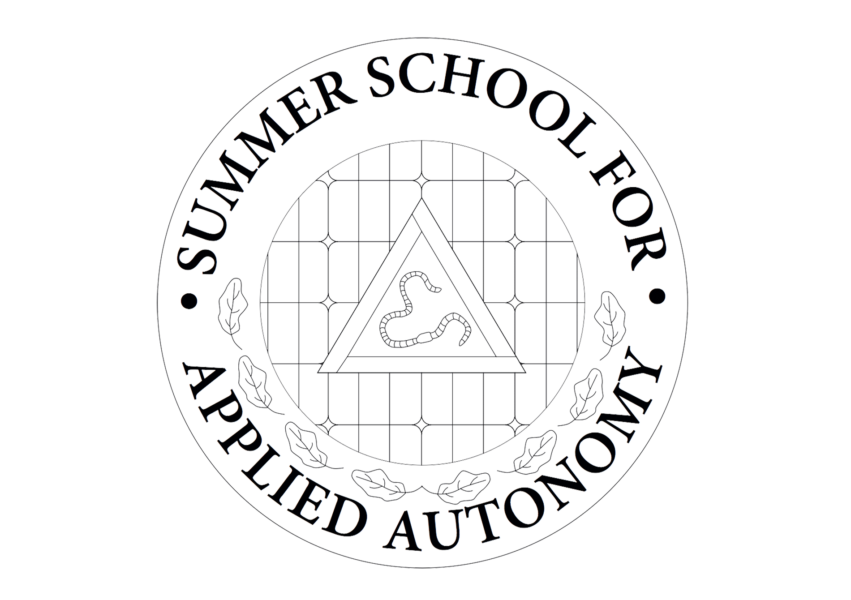
school's logo
-

exchange economy
-

infrastructure
-

explaining how the aquaponic system works
-
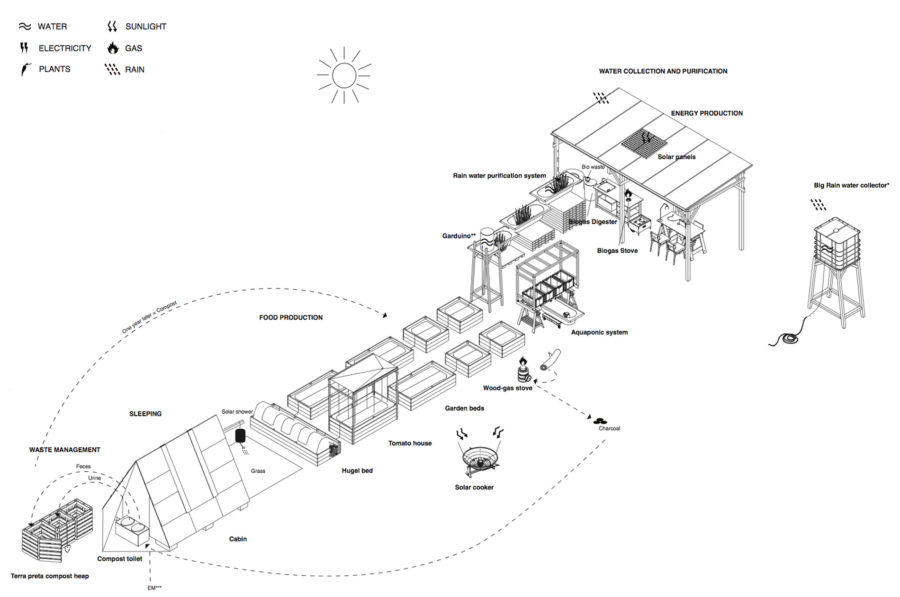
diagram of infrastructure
-

Kitchen: waste water and biogas digester
-
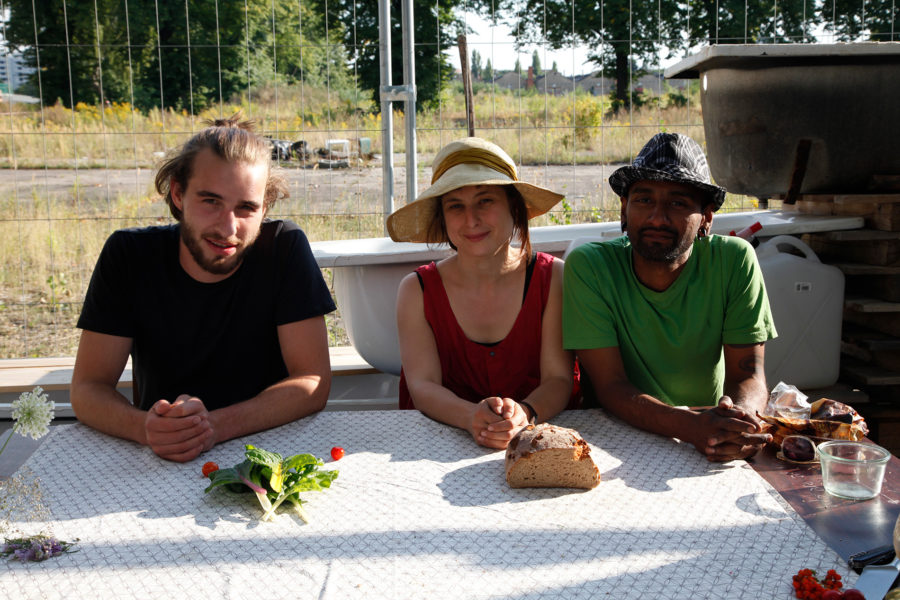
exchange economy
-
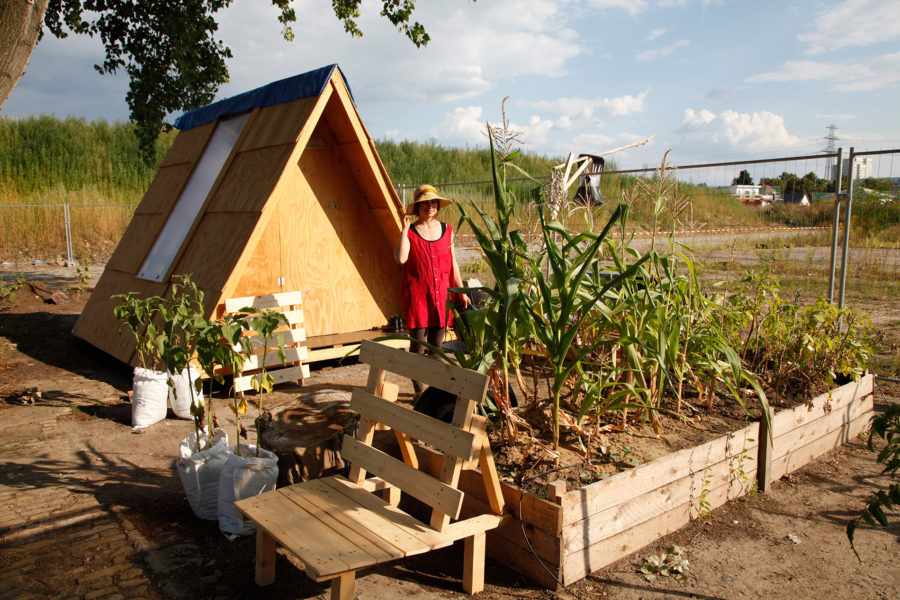
harvesting time
-
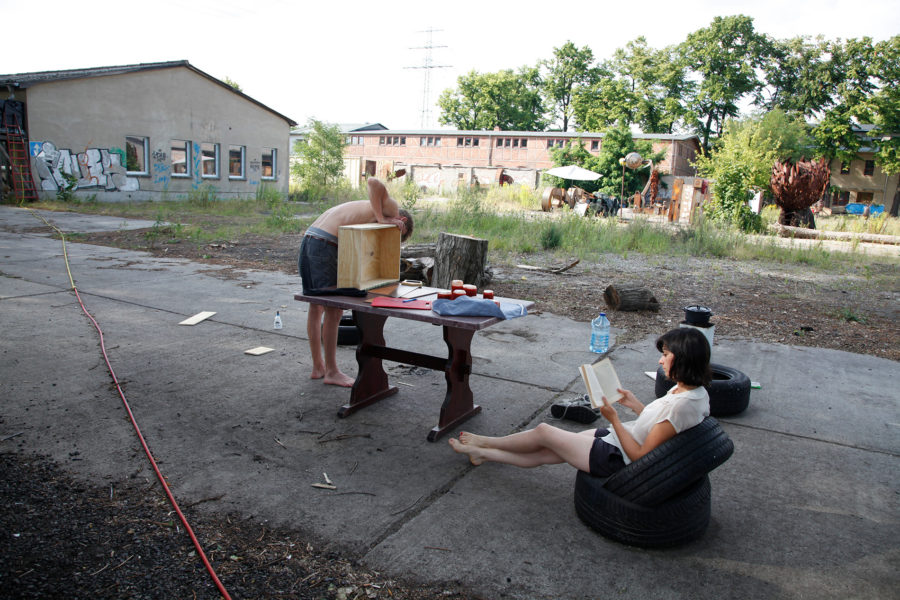
The self-sufficient system can always support 2 people at a time
-
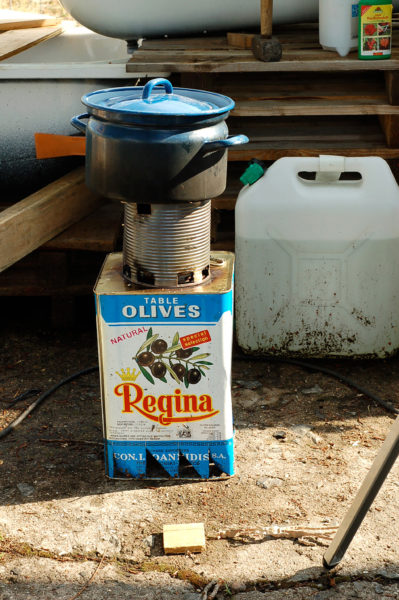
microgasifier
-
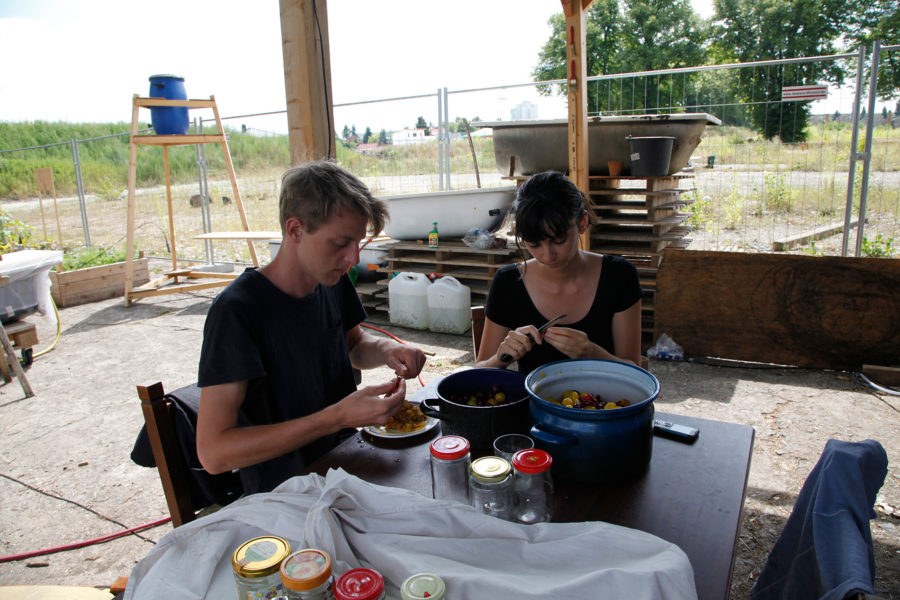
making jam from urban foraging
-

the sleeping unit